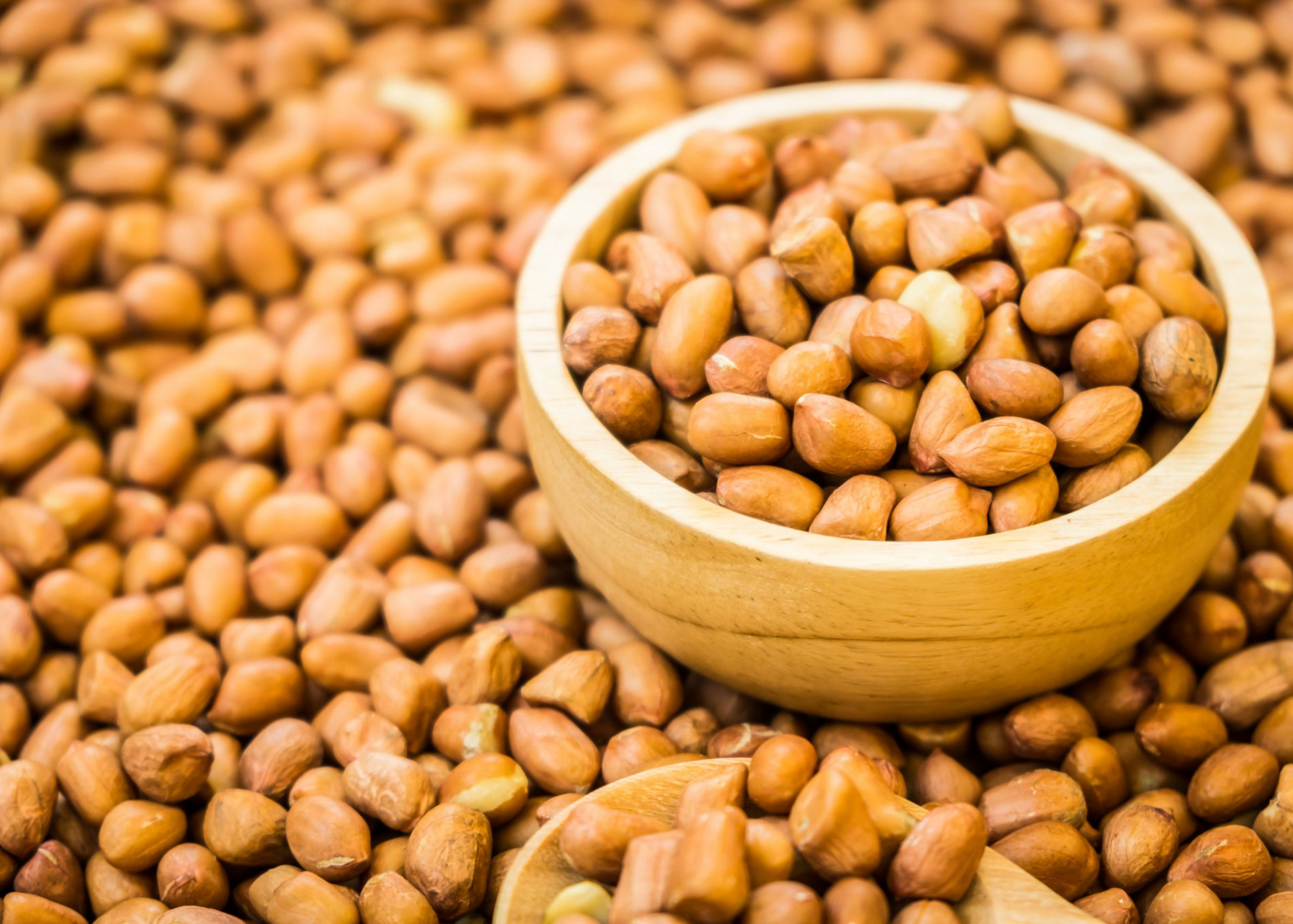News in Brief:
– Nigeria is a major global producer of groundnut, and one civil servant is farming the crop to supplement their income.
– Groundnut farming offers numerous benefits, including soil improvement and economic gain.
Nigeria is the third largest producer of groundnuts in the world, accounting for 10% of global production, and it is number one in Sub-Saharan Africa.
The country’s peanut consumption is expected to reach 4.8 million metric tons (MMT) by 2026, with production reaching 5.3MMT at around the same time.
Tobi Adekunle, a resident of Iyana Isashi, Lagos state, cultivates groundnuts on a small plot of land in his backyard. His day job is in the public sector but he says that farming is a unique way to supplement his monthly income.
“Groundnut farming is not just a hobby for me; it’s a valuable source of income, which helps to supplement my pay, especially during the harvest season,” he told this publication.
Although his farm is a relatively small patch of land behind his home, Adekunle says he makes a decent profit from sales. He also plants other crops like maize, yam and pumpkin on his farm but explains that growing groundnuts in between is a good way to improve the soil’s fertility and yield.
Adekunle’s claim on soil improvement is supported by science and research. Groundnuts, in partnership with soil bacteria known as rhizobia, form root nodules. These bacteria possess the remarkable ability to fix nitrogen from the air, converting it into a usable form for the groundnut plant. The symbiotic relationship allows groundnuts to thrive even in nitrogen-poor soils while the fixed nitrogen is not only utilised by the groundnut plant for protein synthesis but also enriches the soil. As a result, groundnuts can be effectively intercropped or rotated with other crops, which benefit from the residual nitrogen.
Maximising returns: from farm to market
The process of groundnut farming is relatively simple, yet it requires meticulous care and attention. Adekunle begins by preparing the soil, ensuring it is fertile and well-drained. He then plants seeds, carefully spacing them out to allow for optimal growth.
To get good yields, it is important to plant only very good seeds. “I sometimes conduct a pre-planting test to determine the quality of seeds. This is done by planting some seeds a few days in an earth-filled pot, and transferring the ones that show signs of germinating to the main farm,” he explained.
As the plants mature, Adekunle diligently weeds the farm to prevent competition for nutrients and water. He also monitors the crop for pests and diseases, taking necessary measures to protect his harvest.
Once the groundnuts are ripe, he harvests them by hand, carefully uprooting the plants and separating the pods from the soil. Next, he dries the pods in the sun to remove excess moisture, ensuring that they are ready for storage or sale.
According to market research, a 50kg bag of groundnuts goes for about ₦120,000 to ₦150,000. Adekunle says that he sometimes produces up to 100kg of groundnuts from his farm when rotating between crops. Each production cycle could fetch him between ₦100,000 and ₦200,000.
This harvest typically occurs every 3 months as he grows the crop all year round using irrigation. However, he says his aim is to farm the crop and process it into oil and cake. He can then sell the cake to feed mills, while consumers buy up the oil.
Beyond the financial benefits, groundnut farming also offers several other advantages. It provides an opportunity for physical activity and fresh air, promoting a healthy lifestyle. These the farmer says are beneficial to him since it helps to improve overall health and well-being.
Groundnuts thrive in light, sandy loam soils and require a warm climate with five months of consistent temperatures. Annual rainfall of 500 to 1,000 millimetres (20 to 39 inches) or equivalent irrigation is ideal. The pods mature 120 to 150 days after planting, and timely harvesting is crucial to prevent premature splitting or loss in the soil.
They prefer slightly acidic soil with a pH range of 5.9 to 7. In tropical Africa, average yields range from 300kg to 1,000kg per hectare. With careful management and effective disease control, yields can soar to an impressive five tons per hectare.



